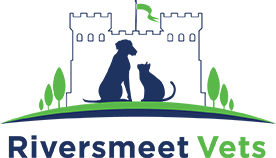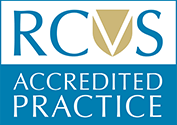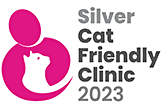Our Guide to Knowing The Dangers of Corn and When You Should Visit Your Local Vet
We all love to share a delicious BBQ with our furry friends, but is it really safe to share some of our favourites, such as corn on the cob, with them? Here we explore the potential risk factors of sharing our classic summertime favourite with our dogs. Ensuring your pup’s health is our priority, so explore more to understand the dangers that corn on the cob poses to them, and when you should seek advice from your local Riversmeet Vets.
What is Corn on the Cob?
Corn on the cob is a type of sweet corn that is harvested while the kernels are still soft and immature. The ears (corn with the husk still on) are then boiled or grilled on the BBQ with the husks still on. While most people think of corn on the cob as solely a summertime treat, it is available year-round.
If you’ve ever dropped your corn on the floor, then you’ll have noticed that your pooch has vacuumed it up before it even hit the ground. So, our dogs seem to love corn on the cob, but is it actually safe for them?
Is it Safe for Dogs to Eat Corn?
The answer is technically both yes and no, though it is always best to take caution allowing your dog to eat it. Whilst we know that corn is a delicious treat for humans, it can definitely be dangerous for your dogs. Like with many things, it all comes down to moderation and paying attention to your dog.
If you know or suspect your dog has eaten corn on the cob, there are certain signs of distress to watch out for. If you notice your dog rubbing at their mouth, or any excessive drooling, vomiting, or diarrhoea, we recommend that you call your local Riversmeet Vets immediately!
Corn on the cob can be safe as a tasty treat for your dogs to eat in moderation. There are, however, some serious dangers that you should be aware of.
What are the Dangers of Feeding Corn on the Cob to Your Dog?
As it is a common summertime food that many of us enjoy, corn on the cob may seem like a harmless treat to many of us.
The biggest risk factor for your dog is that the core of the corn can become stuck. This can be especially true if your dog has bitten off more than they can chew, or the core has splintered. This can either occur as a choking hazard in your dog’s throat, or as a blockage within their intestines. Each situation could cause serious issues or even death. This will often require surgery to remove the obstruction before any serious harm can occur.
The core of the cob can also be a hazard if your dog cannot chew it properly. In addition to the choking hazard, corn on the cob can also cause serious digestive problems for dogs. If your dog doesn’t have any teeth, or if their teeth are not strong enough to properly chew the corn, it can cause issues such as vomiting or diarrhoea. Even if your dog does have strong teeth, they may still have difficulty digesting the individual pieces of corn due to its hard kernels.
Whilst corn on the cob is a delicious treat for humans, even the kernels can get stuck in your dog’s teeth and cause discomfort or gum infections.
Can My Dog Be Fed a Small Amount of Corn?
Yes, your dog can have a small amount of corn, so long as you have removed the kernels from the cob before giving it to them. Corn is generally safe to eat, but as it is high in sugar it should not be fed to them in large quantities.
We also recommend that you check your dog’s teeth or brush them after they have eaten corn. This will help keep your dog’s dental hygiene healthy as well. If you are concerned about your dog’s diet, consult with your vet at Riversmeet Vets.
Find out more about dental care for your pet.
Should You Keep Corn Away from Your Dog?
If you are considering feeding your dog corn on the cob, it is important to discuss this with your vet first. They can help you to determine if it’s safe for your particular dog, considering their breed and individual needs, and give you tips on how to avoid any potential dangers.
Corn is a high-calorie food, especially if covered in butter the way humans enjoy it. This can also contribute to weight gain and health concerns in dogs. It is also important to consider your dog’s allergies, as some dogs may have an allergy to corn that you may not know about if you haven’t had them tested before.
Corn on the cob should never be given to a dog unsupervised and should not be used as a chew treat. If your dog has eaten corn on the cob, watch for signs of choking or gastrointestinal distress. If you see these signs, visit your veterinarian immediately.
Learn more about weight management and nutrition for your pet
Do I Need to Visit a Vet If My Dog Has Eaten Corn on the Cob?
If your dog has only eaten the kernels, then there shouldn’t be any cause for concern unless your dog shows any signs of distress.
If, however, your dog has eaten the core of the cob then it is important to monitor them closely for any signs of gastrointestinal distress. If your dog begins vomiting or has diarrhoea, contact your vet immediately. As corn on the cob can cause intestinal blockages, it is important to seek medical attention if your dog begins to show any signs of illness.
As stated previously, these signs include, but are not limited to:
- Choking
- Your dog rubbing at their mouth/face
- Excessive drooling
- Vomiting
- Diarrhoea
If your pet is having an of these symptoms, please contact us.
Overall, How Safe is Corn for Dogs?
In conclusion, we hope that this article has helped you to understand the risks of feeding corn to your dog, as well as when you may need to visit a vet. As always, it is best to consult with a professional if you have any concerns about your pup’s diet or health. While corn kernels can be an occasional treat for some dogs, they should never be given as their primary food source or in large quantities. Remember that safety always comes first when it comes to our dog’s well-being.




